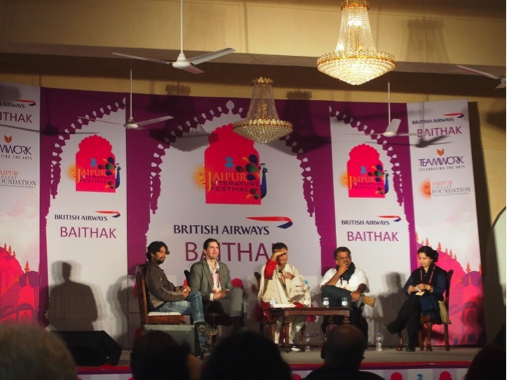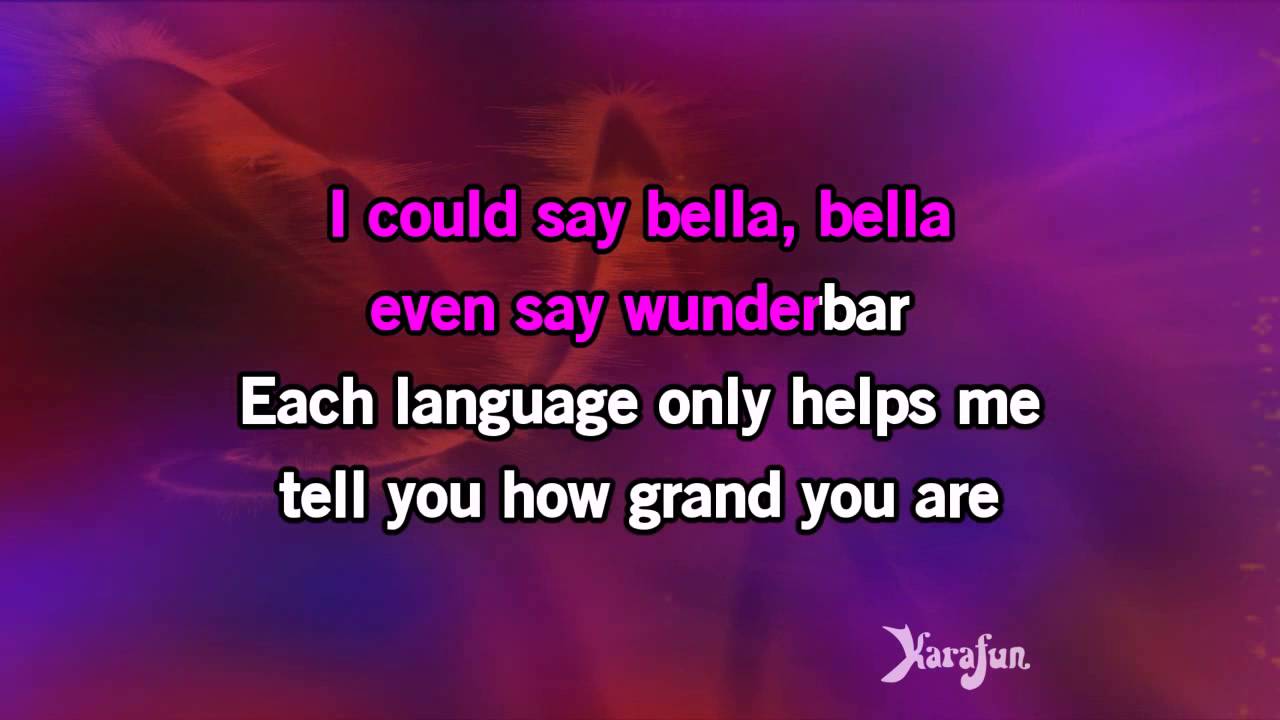Without a doubt, this week’s spine tingling, gosh-wow literary hullabaloo was due to the fortuitous discovery of two new poems by Greek lyric poet (and all-around legend) Sappho. Our archives of Sappho’s poetry are notoriously fragmented, but Oxford papyrologist Dr. Dirk Obbink says the poems are “indubitably” hers—heartening news for lyric-lovers all around. READ MORE…
Monthly Archives: January 2014
Weekly News Roundup, 31st January 2014: New Sappho, Hard science fiction, Language Olympiads

A look at some of the most important literary news this past week
“Let’s go get some water,” said the man with a coarse salt-and-pepper beard, grabbing his parka from a hook on the wall behind the wood stove.
“Can’t we do it tomorrow morning when it’s light outside?” replied the son, looking up from the book he was reading and then looking out the frosted window. “It’s pitch black out there.”
“No. Let’s do it now. Grab your coat.” READ MORE…
On the first Malay-Language Translations of Stephen King and Neil Gaiman

Amir Muhammad, founder of Buku Fixi [Fixi Books], talks with Asymptote
Buku Fixi, established in 2011, is a Petaling Jaya, Malaysia-based publisher of Malay-language novels with a focus on contemporary urban themes. Buku Fixi includes three other imprints: “Fixi Novo,” which publishes English-language books, “Fixi Retro,” which publishes out-of-print Malay titles, and “Fixi Verso,” highlighting bestsellers in translation. Buku Fixi’s founder, Amir Muhammad, also founded Matahari Books in 2007, publishes non-fiction titles in English and Malay, and is an active writer and filmmaker.
Just this month, Fixi published the first Malay translations of a Stephen King novel, JOYLAND, and a Neil Gaiman novel, THE OCEAN AT THE END OF THE LANE (translated as LAUTAN DI HUJUNG LORONG). Why do you think it’s taken so long for these bestselling authors to be translated into Malay? READ MORE…
Dispatch from Jaipur Literature Festival

A look back on the "Woodstock, Live 8, and Ibiza" of world literature
The Jaipur Literature Festival, which just hosted its tenth edition, has been called “the Woodstock, Live 8 and Ibiza of world literature, with an ambience that can best be described as James Joyce meets Monsoon Wedding.” In 2013, over a quarter of a million footfalls were recorded, with 2014 promising even higher numbers. Travelling to the JLF this year (my third festival visit) from Kathmandu on a work-related trip, I attended days two, three and four. The full programme, over the course of five days, featured over 200 sessions in six venues. This year’s poor weather may have dampened things (quite literally) thanks to chilly thunderstorms throughout north-western India on day five and cold temperatures and fog on the other days—but the uncomfortably large crowds continued to congregate, turning the Diggi Palace grounds into something akin to Tokyo’s Shinjuku train station during rush hour.
Three days of national mourning were declared in Argentina to commemorate the life of poet Juan Gelman, who passed away at eighty-three on Tuesday, January 14th in Mexico City. Silvina Friera of Pagina/12 remembered the Argentine poet’s great contribution to Spanish literature, stating “we have lost a man who transformed wounds into memorable verses…an untamable voice, so close and so beloved, whose deep cadence crackled with an elegant and playful irony.” READ MORE…
Weekly News Roundup, 24th January 2014: Overrating American literature, Libraries in flux, Ironical semicolons

A look at some of the most important literary news this past week
Xiaolu Guo’s got a bone to pick with American publishers. At a panel called “the Global Novel” at the Jaipur International Literary Festival, she (now-famously) remarked, “American literature is massively overrated,” and it was this week’s grumble heard ‘round the literary world. She has got some very good points—here’s the discussion in full—but that’s not the whole story. Via Three Percent, a rant in response. READ MORE…
Let’s take a look at what some of our past contributors have been up to, in this our first contributors’ news roundup for 2014.
You’ve read about it, Monday was supposedly the saddest day in the year, or so ‘scientists’ claim. Blue Monday. Of course that’s bullshit, as this Guardian blogpost heartily shows. Still, is it a coincidence that Monday also saw the arrival of the Berlin season of snow and ice? As someone with a decidedly ungenetic equatorial disposition, I’m having a hard time, needless to say, so I’m resorting to musical therapy to keep my morale up.
But what to play? New Order’d be good, if awfully literal, perhaps the steamrolling original, or this delightfully goth Gregorian version, or maybe the below French-language version by The Times, an English band signed to Creation Records that also recorded Japanese, Spanish, German, Brazilian Portuguese versions (all of which now very happily in my possession). READ MORE…
In Wilma Stockenström’s novel, Expedition to the Baobab Tree, we meet a woman who has no language of her own. Captured as a young girl and sold into slavery, she can identify neither with the fractured “worker’s language” of her fellow slaves nor the Afrikaans imposed on her by her owners, instead becoming alienated from both groups. Since the languages we speak provide us with internalized values and systems of categorization to understand and locate ourselves within the world, Stockenström’s protagonist’s lack leaves her disoriented and struggling to construct an identity. She discards the constraints of human language, culture, and systems of categorization; unraveling her conditioning as a slave, she improvises a language of her own, a vocabulary masterfully crafted in Stockenström’s prose and expertly preserved in Coetzee’s translation. Yet having internalized her worth as determined by her usefulness to her masters, she finds her solitude in the wilderness unbearable, the maddening isolation finally driving her to suicide. READ MORE…
Who is your favorite fictional character of all time?
Too hard a question as it would require me to remember all the books I’ve read.
Weekly News Roundup, 17th January 2014: Twitter’s Beowulf, Net neutrality, Woof woof poetry

A look at some of the most important literary news this past week
First things first: if Asymptote’s third anniversary January Issue—featuring the likes of J.M. Coetzee, Victor Rodriguez Núñez, and the winners of our Close Approximations contest— isn’t on your radar, you’re seriously missing out. Check it out now! If you like the issue so much you feel like celebrating, join the fête in London, Zagreb, Buenos Aires, Philadelphia, Sydney, Berlin, New York, or Boston! READ MORE…
Víctor Rodríguez Núñez (Havana, 1955) is one of Cuba’s most outstanding and celebrated contemporary writers. Collections of his poems appear throughout Latin America and Europe, and he has been the recipient of major awards all over the Spanish-speaking world, most recently Spain’s 2013 Alfons el Magnànim International Poetry Prize for his book, desde un granero rojo (from a red barn). Known as a charismatic reader, he has been a riveting presence at most of the major international literary festivals for over a decade, having read in more than twenty countries. In the last several years, Rodríguez Núñez has begun to develop an enthusiastic English-reading audience as two book-length translations of his work have appeared in the UK, along with a chapbook in the United States, as well as poems in prominent American and British journals.
Frisch and Co. is an electronic books publisher based in Berlin that focuses on contemporary world literature translated into English. The company has partnered with numerous international publishers and releases its books through traditional ebook marketplaces and in DRM-free format on its website. E.J. van Lanen is the founder of the press.
“Poetry needs experiment, philosophical reflection on its own material, rebellion, seeing itself as a task for readers,” argued Piotr Śliwiński in his 2002 overview of contemporary Polish poetry, Adventures with Freedom. “In other words, it needs Karpowiczs. Especially Polish poetry, dominated over the last two decades by Miłosz and Herbert.” As a translator, I often think of Śliwiński’s diagnosis, particularly when I need to disappoint my interlocutors with the news that I don’t translate Herbert, Miłosz or Szymborska. I don’t have to – they are synonymous with Polish poetry in English. But Karpowicz? How to explain, then, what poetry needs, if this name hardly functions outside Poland? Another challenge: how to present a poet Karpowicz tried to promote, both in the US and in Poland? If only I could say, “Krystyna Miłobędzka is one of the Karpowiczs…”









